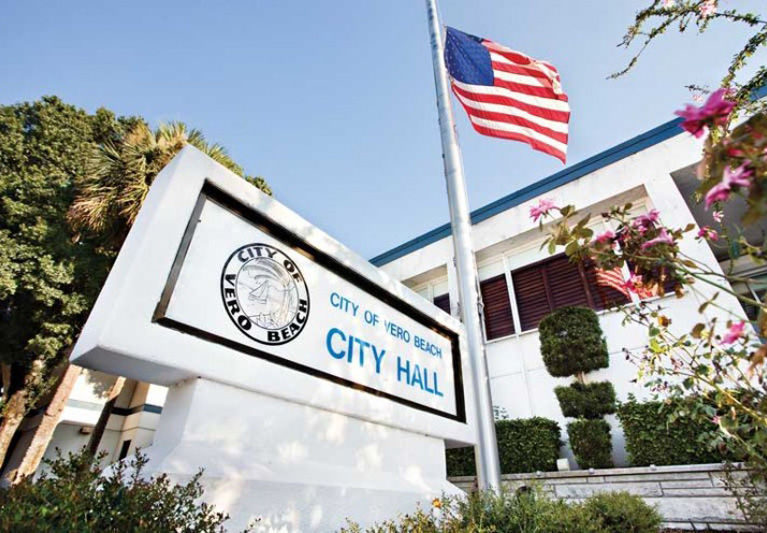
VERO BEACH — In the wake of the City of Vero Beach and the Teamsters union’s failure to agree on terms that would result in a ratified contract to settle an impasse on a two-year-old contract, the city will likely have to impose changes to its holiday, vacation and pension system.
Union members are expected to reject the reforms, as they came without the proposed wage increases the employees had sought, so without a ratified contract the city and the Teamsters are likely to wind up right back into heated negotiations just weeks from now for the coming budget year that starts Oct. 1.
The Vero Beach City Council voted last week to freeze its costly defined-benefit pension plan and to start over with a defined-contribution plan that will be similar to a private-sector 401(k) plan with city taxpayers contributing 7 percent of the employees’ salary annually and employees contributing 3 percent.
In exchange for the long-term market risk reduction this move provides, unfortunately the city still must contribute each year to fill the $35 million-plus unfunded pension hole left by the old plan.
The council rejected a 2 percent across-the-board wage increase proposed by the Teamsters, who represent nearly 300 utility, solid waste, public works, clerical and technical workers. The council also declined to restore employees to the longevity “step” pay levels that employees would have achieved should the step program not have been frozen as part of budget cuts. Restoring those increases would have cost about $112,000, according to city staff.
Councilwoman Amelia Graves wanted to reinstate the step plan because, she said, if the city has a plan on the books, it should use it and that freezing the step plan due to budget cuts had created an increasing wage disparity among employees, which she didn’t think was in the spirit of fairness.
In line with a long-term goal of the council for the past four years, officials voted to freeze employees’ banks of annual leave at present levels, and going forward, to institute a “use it or lose it” program for new vacation time.
As part of the lengthy impasse process, the city and the Teamsters had gone to a Special Magistrate to mediate the labor dispute.
The Teamsters’ position was that the city approve the Special Magistrate’s recommendations in their entirety – some items that were good for the union and others that benefitted the city.
Teamsters business agent Steve Myers said the union felt it best to honor the Special Magistrate process and not “cherry-pick” items from his recommendations. But instead of doing the same, Myers said the city council approved items recommended by City Manager Jim O’Connor and labor attorney Jason Odom, but rejected the wage increase and step plan restoration.
“The Union and the City employees are disappointed that three City Council members failed to understand the impact of the changes of the pension plan, especially since the Union’s proposal would have saved the City and the City taxpayers over $300,000 in FY 2014-2015,” Myers said in response to last week’s votes. “Also, we are disappointed that the Council members failed to give any wage increase to the employees who have kept the City running in the most difficult years. The Union and the employees will keep fighting for what is fair and just for the employees and the City.”
Councilwoman Pilar Turner, who has pressed for greater fiscal responsibility in her more than four years on the council and voted against the wage increase and the step plan increases, said, “I’m glad that the council took a long-term approach to the continuing, growing liabilities of a defined benefit pension plan, for which we are currently putting in an extra $5 million per year working down a $37 million liability. The defined-contribution plan will help ensure the long-term financial stability of the city.
“I’m glad we eliminated the sick pay banking and use it or lose it for vacation, but those are only imposed on an annual basis and I’m sure we’ll be dealing with it again.”
Should the city end up back in active negotiations with the Teamsters, they will soon be joined by the police unions that will open up their contracts for renegotiations in the spring, probably April or May.



